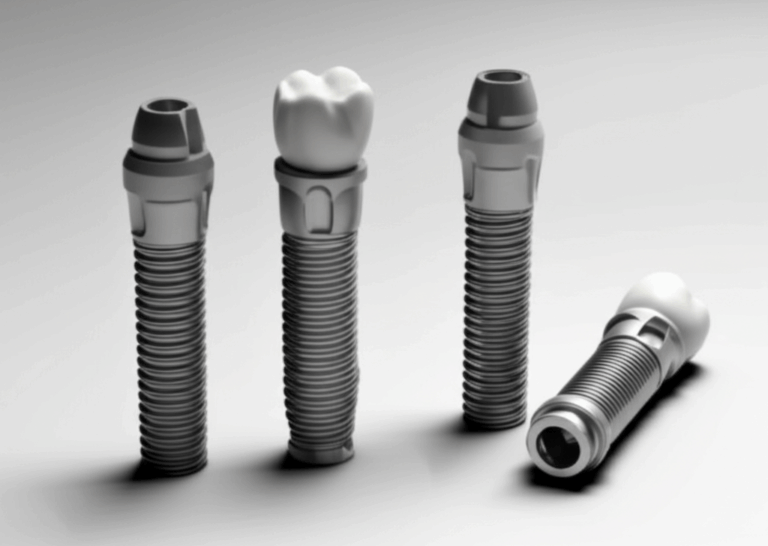
Can Dental Problems Cause Eye Problems? Understanding the Surprising Link
Of course! Here’s your article rewritten with simpler, easier-to-understand language, but keeping all main points and formatting intact. The Table of Contents module has been inserted right after the introduction, using a clear heading and bulleted list based on each H2.
When my right eye started twitching and wouldn’t stop, I didn’t think much of it. I was stressed and tired, so I figured it was nothing. But then a dull ache started behind my eye, and a few days later, my vision in that eye went a bit blurry. I noticed my eye was a little swollen underneath. That’s when I realized it might be connected to the toothache I’d been ignoring for a couple of weeks. It seemed strange—how could a sore tooth make my eye hurt?
I found out the hard way that, yes, your mouth problems can lead to problems with your eyes. Your oral health and eye health are connected more than many people know. A small problem with your tooth can sometimes turn into a serious issue for your eye. Since I’ve been through this myself, I want to share what I learned, so you know the risks, what warning signs to look out for, and when you need to get help quickly.
Table of Contents
- How Dental Infections Spread to the Eyes
- Specific Dental Problems and Their Associated Eye Complications
- Eye Symptoms to Watch For If You Have a Dental Problem
- Diagnosis and Treatment: When to Seek Medical Help
- Prevention: Protecting Your Oral and Ocular Health
- Conclusion: Your Mouth is the Gateway to Your Body
How Dental Infections Spread to the Eyes: The Hidden Pathways
When my dentist explained how my toothache was causing my eye issues, it finally made sense. Our heads are packed full of nerves, blood vessels, and other tissues that all sit very close together. That’s what makes it possible for an infection in your mouth to reach your eye. Here’s how this can happen:
Direct Spread of Infection
Think of the layers in your face like sheets of cloth. If you spill something on one sheet, it can soak through to the next layer. The tissues in your face work the same way. An infection, like a pus-filled abscess from a tooth or gum, can push its way through soft tissue and bone.
This mostly happens with the top teeth. The roots of your upper back teeth are right next to your sinus cavities, which are air pockets under your eyes and in your cheeks. If a tooth infection gets into your sinus, it can move upward and reach the area around your eye.
My dentist showed me an x-ray and pointed to how close the root of my sore tooth was to my sinus. It was almost touching! That’s when it all made sense.
Spreading Through the Bloodstream
This sounds like something from a TV show, but it’s real. A bad tooth infection, like an abscess or advanced gum disease, can let bacteria get into your blood. The germs can then move anywhere in your body, including to the small blood vessels in and near your eyes.
When this happens, it’s called bacteremia or sepsis, and it can cause swelling and even new infections away from where it started. One condition it can cause is called uveitis, which is swelling in the middle layer of the eye.
Spreading Through the Lymphatic System
You also have a system in your body called the lymphatic system, which fights infections. The lymph nodes can swell and become sore when fighting germs. Sometimes, the germs can keep moving through these nodes and channels, possibly reaching the area around your eye.
Nerve Pathways (Referred Pain)
Have you ever had pain in one place, but it really starts somewhere else? That’s called referred pain. It happens because your nerves are all connected. In your face, you have a big nerve called the trigeminal nerve that splits into three branches: one for your forehead and eye, one for your cheeks and upper jaw, and one for your lower jaw.
Because these nerves are connected, pain in your tooth can be felt in your eye or head. That’s why a toothache can sometimes feel like a headache, earache, or cause pain behind your eye.
Specific Dental Problems and Their Eye-Related Complications
Don’t worry: not every cavity will hurt your eyes. But it’s important to know which mouth issues can lead to bigger eye problems.
Tooth Abscess (Periapical or Periodontal)
This is a big one. A dental abscess is a pocket of pus caused by a tooth or gum infection. If you don’t treat it, it can spread.
- Orbital Cellulitis: This is the most common serious eye problem caused by a dental abscess. It’s a deep infection of the fat and muscles around your eye. It comes on fast, making your eye area very painful, red, swollen, and sometimes causing your eyeball to bulge out. If you have these symptoms along with a toothache, get help right away. Orbital cellulitis can cause permanent blindness if it isn’t treated quickly with strong antibiotics.
- Cavernous Sinus Thrombosis: This is very rare but very dangerous. Behind your eyes, there are veins called the cavernous sinuses. A tooth infection can travel there and cause a blood clot. This can affect the nerves that help your eyes move, and can lead to a brain infection or meningitis. Signs include a bad headache, high fever, trouble moving your eyes, or droopy eyelids.
Severe Gum Disease (Periodontitis)
We usually think gum disease only affects our mouths, but it actually causes swelling throughout your whole body. The germs in your gums can get into your blood, leading to long-lasting low-level swelling in your body. Researchers say there’s a link between gum disease and eye problems like uveitis (swelling inside the eye) and even dry eyes. While it’s not as direct as with an abscess, keeping your gums healthy helps your whole body.
Odontogenic Sinusitis
“Odontogenic” means “starts from a tooth.” Like I said earlier, the roots of your upper back teeth sit just under your sinuses. If a tooth infection spreads here, it causes sinusitis. You’ll feel pressure and pain in your cheek, under your eye, and you might get a blocked nose on that side. If it doesn’t get better, the infection can reach the eye socket and cause orbital cellulitis.
Wisdom Tooth Infections (Pericoronitis)
When your wisdom teeth don’t come in properly, they can get stuck under the gum. Bits of gum can cover the tooth and trap food and germs, leading to a painful infection called pericoronitis. The swelling from this can spread up the side of your face and make your eye area hurt and feel squeezed.
Temporomandibular Joint (TMJ) Disorders
TMJ problems affect your jaw joint and chewing muscles, and while it’s not an infection, the swelling and tense muscles from TMJ can send pain to other places. A lot of people with TMJ say they have headaches, ear pain, and even pain behind their eyes. It can feel like your eyes are always tired or under pressure.
Eye Symptoms to Watch For if You Have a Dental Problem
You should never ignore these signs, even if they seem small. If you have a toothache or any mouth problem, and you notice any of these signs in your eyes, act right away:
- Pain in or Around Your Eye: Especially if it’s on the same side as your sore tooth.
- Swelling: Any puffiness or swelling around your eyelid or eye.
- Redness: If the white part of your eye or the skin around it is red and sore.
- Bulging Eye: If one eye sticks out more than the other. This is a big warning sign.
- Blurry or Double Vision: Sudden changes in your sight are always a worry.
- Eye Pain When Moving: If it hurts to look around.
- Light Sensitivity: Your eyes start hurting with light, when they didn’t before.
- Vision Loss: Any loss of vision, even only sometimes, is an emergency.
- Fever: If you have eye problems and a fever, your body is fighting a strong infection.
During my own experience, the main thing was a dull, steady ache behind my right eye. Looking side to side started to hurt. I thought I just needed new glasses. Only when my eyelid started to puff up did I realize something more serious was going on.
Diagnosis and Treatment: When to Seek Medical Help
Let me be clear: If you have tooth pain and any of the eye symptoms above—especially swelling, vision changes, or bad pain—it’s an emergency. Don’t wait. Go to the emergency room or urgent care right away.
What to Expect at the Doctor or Dentist
To figure out what’s wrong, you may need to see a few specialists.
- Dental Checkup: The dentist will look for where the infection started. This often means looking in your mouth and doing x-rays. Sometimes, you’ll get a detailed 3D scan if they need to see exactly where your tooth roots and sinuses sit.
- Eye Exam: The eye doctor checks your vision, eye pressure, and the back of your eye to look for swelling or damage.
- Imaging: If doctors think you have something like orbital cellulitis, they’ll do a CT or MRI of your head to check how far the infection has spread and if it’s reached your brain.
- Blood Tests: These test for signs of a whole-body infection, like high white blood cells.
The Treatment Plan
Doctors focus on two main things: stopping the infection and getting rid of what’s causing it.
Prevention: The Best Medicine
The best way to stop these scary problems is to not get them in the first place. Luckily, preventing them is pretty straightforward.
- Don’t Ignore Tooth Pain: Pain means something is wrong. See your dentist quickly when your tooth hurts—it rarely goes away by itself.
- Take Care of Your Mouth: Brush your teeth twice a day, floss daily, and you might try a mouthwash. This keeps the germs and plaque away.
- See Your Dentist Regularly: Get your teeth checked and cleaned every six months. Your dentist can find small problems before they turn big. If you need things like crowns or bridges, a good dental laboratory helps make sure they fit well and prevent future issues.
- Fix Known Issues: If your dentist says you have a deep cavity, broken dental work, or gum disease, make a plan to fix it soon. Waiting can lead to much bigger and more dangerous problems later.
Conclusion: Your Mouth is the Gateway to Your Body
My own scary experience with a tooth infection spreading to my eye taught me something important: everything in our body is connected. A problem in your mouth can lead to a big problem somewhere else—sometimes where you least expect it.
The connection between your teeth and eyes is a strong reminder. Big complications are rare, but they do happen. Taking care of your teeth isn’t just for a good smile. It’s for keeping your whole body healthy, including your eyes and even your heart. Listen to your body, pay attention to pain, and see your dentist regularly. It’s one of the easiest ways to protect your long-term health.








